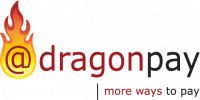
Posted: December 03
With credit cards being the most prevalent form of online payment, and PayPal a distant second, merchants might ask why is there a need to accept yet another online payment service. Our previous posting has highlighted the fact that the untapped market segment with no credit cards is very large — significantly larger than the credit card market. And studies have shown that even those with credit cards would rather not use it online if there were more secure alternatives.
As of this posting, PayPal can only be funded by credit cards in the Philippines. So it follows that Philippine PayPal users are just a small subset of the (relatively) small credit card population in the Philippines. This brings us again to the point that merchants are missing a huge market who cannot pay for their goods and services simply because they have no credit cards or are afraid to use their card online for fear of fraud.
One sensitive topic that is often not understood by merchants is the issue of chargebacks. A chargeback basically happens when a credit card holder disputes a billing that is charged to him. This dispute may be legitimate or not.
Example of valid disputes are as follows:
- is if the merchant really failed to deliver the goods or service
- the item ship was damaged and the merchant refused to replace it
On the other hand, the following are examples of illegitimate chargebacks:
- there are really just people who honestly forgot about doing a transaction and files a chargeback thinking it was done fraudulently
- some cardholders may abuse the system and intentionally do chargebacks to avoid paying for the goods or services they procured
Regardless whether or not the chargeback claim is valid, the onus on proving it falls on the merchant. Not only does it takes up valuable time, it also costs money. Majority of online payment services, especially credit cards, will slap the merchant with a chargeback fee whether or not the claim is legitimate. This fee basically covers the card company’s administrative work involved in processing chargeback cases. The fee can be anywhere from PHP 500 to PHP 1,500 — sometimes more than the cost of the item being disputed.
Not only is the merchant slapped with the fee, the card company would normally immediately retrieve the amount it settled to the merchant previously. Only when proven wrong will it return the money. This behavior seems to be particularly true for Visa and Mastercard, who tend to be more pro-cardholder. They usually work on the assumption that the merchant is guilty unless proven otherwise.
After this long discussion of chargebacks, the obvious question now is — does Dragonpay support chargebacks? The answer is ‘no’ because:
- All our payment options (online banking, over-the-counter banking and over-the-counter non-traditional) do not have the concept of a chargeback
- The password and authentication system involved with online banking is so much more advanced compared to the CVV-checking of credit cards that for one to successfully use it to make a payment, it has to be the legitimate owner of the account.
As a merchant, you have the comfort of knowing that once you get paid, you stay paid. Furthermore, this allows our merchant to sell higher risk products like intangible goods (ex. music download, online consulting services), which credit card-dependent merchants are usually not allowed to sell.
